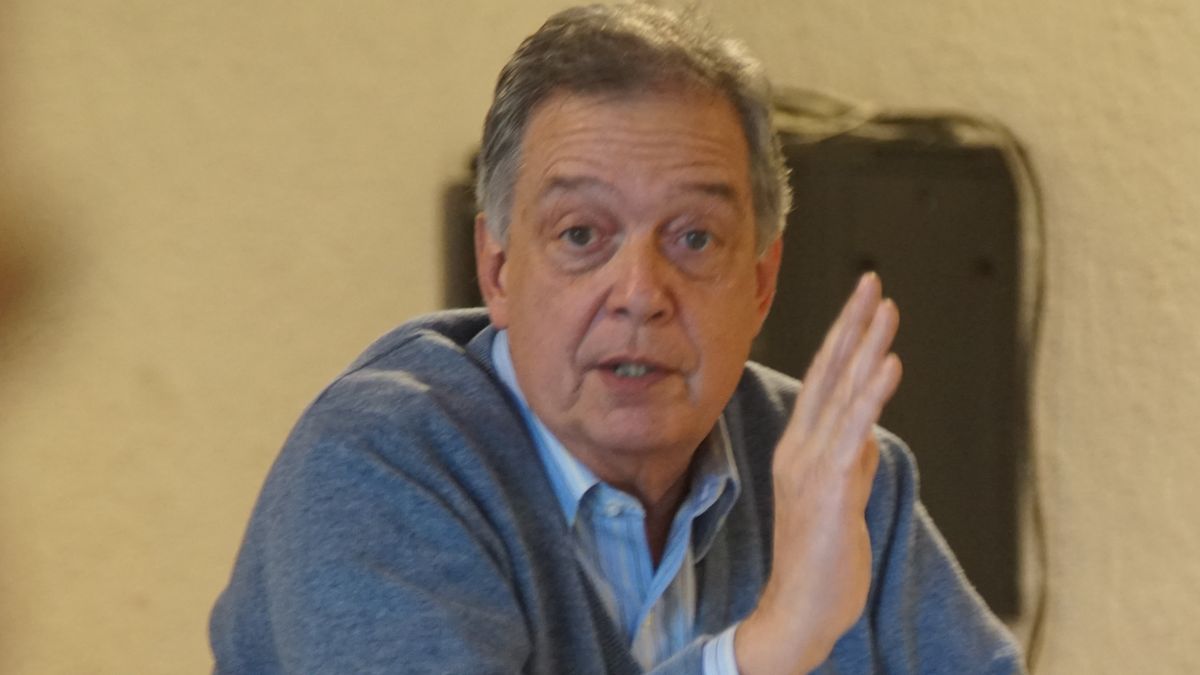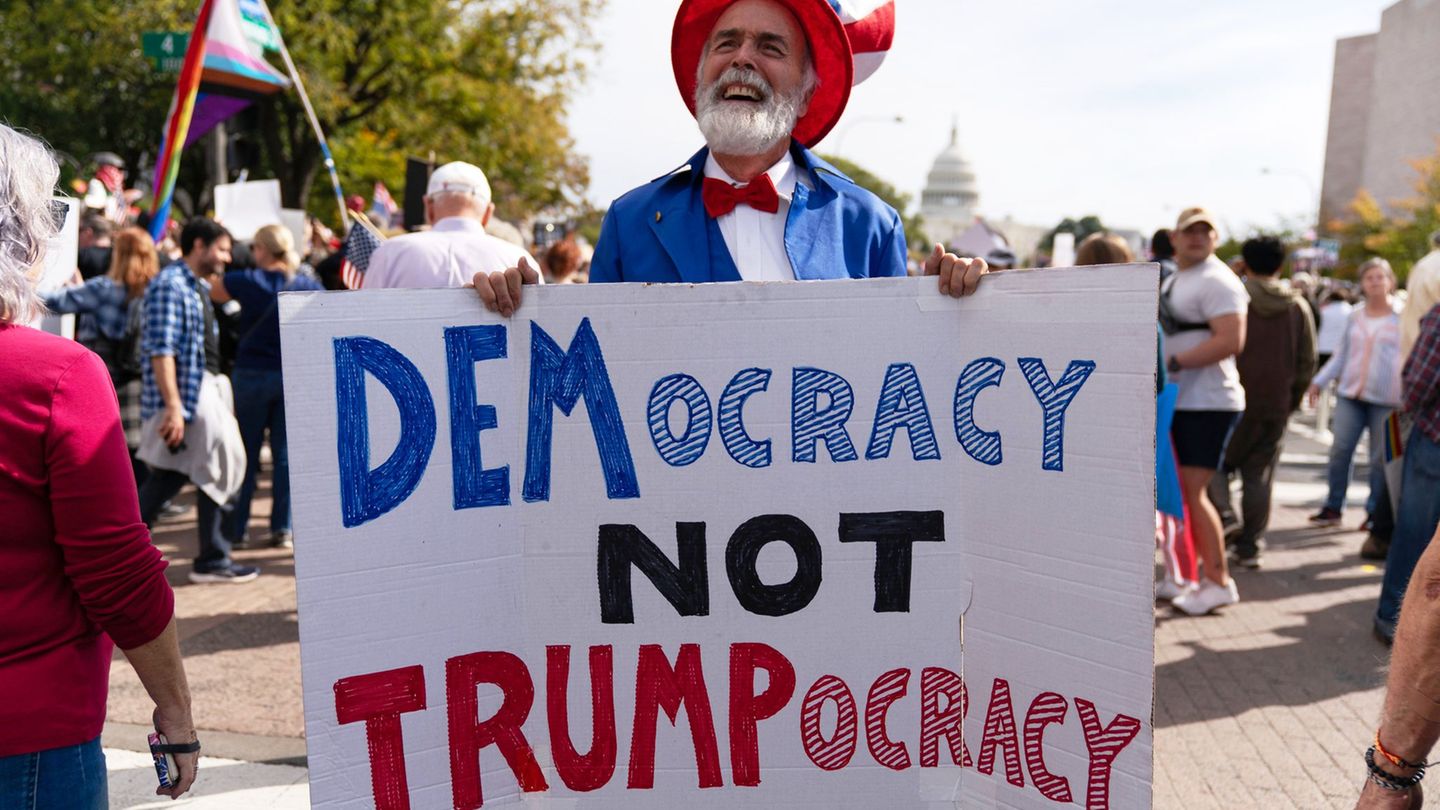“It was a very positive visit, round from the point of view of the aspects of strengthening ties of friendship and complementarity, with important political coincidences,” he reflects in a dialogue with Ambit, at his office. The state trip led by the president Luis Lacalle Pou It was sealed with 24 agreements, many of them paved by the minister’s previous visit to Beijing.
Regarding the agreements reached with China for the agricultural sector, are there some that will have an immediate impact or are we talking about a medium-term impact?
– There are some that are very immediate, such as the empowerment of bovine stomachs. Much work has been done with China based on the guarantees offered by the Uruguayan health system. Once the companies are registered, it will automatically generate a jump in income. Others, such as the authorization of sorghum both for human consumption and for animal consumption. It is a cereal that gives a very good possibility of crop rotation and also generates, under positive conditions, the possibility of expanding the cultivation area and at the same time generating a business stream that is profitable by improving the menu option.
The authorization of wild aquatic products remained at an advanced stage, the grid of citrus products was complemented through the approval of lemons, sport horses which are the important chapter due to the good receptivity that the Chinese have regarding developing leisure activities.
In the middle of the year, a group of US senators presented a project to modify tariffs on some Uruguayan products. Have you been able to work to make progress?
– It is a manifestation of intention of legislators who were visiting the president Luis Lacalle Pou and later the president was with them when he visited USA. It is on the agenda of the North American Parliament, but we do not know if it would be quickly applied. It is a legislative act that would allow some products that do not currently have quotas to enter in better condition. But we have to wait for the law to be enacted, which would put us on par with other countries in the Caribbean Basin that have this privileged status from the point of view of access.
Are you concerned about Brazil’s desire to limit dairy imports, affecting a relevant local sector?
– We have worked a lot with the Brazilian authorities. There is a social problem from the point of view of smaller family producers. The productive spectrum of Brazil It is very broad, it goes from a very professional dairy to a subsistence dairy with very low productivity, that is the problem even though the price in Brazil is always higher than ours. What we wanted to clarify to the Brazilian authorities is that the Uruguay is a reliable supplier, which is a supplier that Brazil needs because structurally it ends up being a dairy importer. And, ultimately, it cannot be that the natural supplier ends up being accused of being the cause of the internal problems of the Brazilian dairy because when the Uruguayan product is necessary, there are no major problems.
What we also ask at the level of the authorities is that the analyzes carried out at borders be carried out in a transparent manner and that there is recognition of the Uruguayan quality parameters. We have had discrepancies in the results. There has been a complex treatment of Uruguayan imports, which does not correspond to the quality and health guarantee of the products that emerge here. And that the analysis systems are not used to eventually block a trade that, furthermore, in the Mercosur It’s free.
Mattos China.jpeg
Once the worst of the drought has passed, what prospects are there for agriculture next year?
– It gives the impression that from a climatic point of view the situation is normalizing, that there is a recovery of the productive systems, but it will take time. Many sectors have been hit hard by the fall in productivity, which is the impact on the economies, the extra cost that had to be faced in the face of a complex year from the point of view of the drop in physical production that is also associated with the drop in prices and rise in costs. Many people had to resort to reservations or indebtedness to be able to face the situation. This combination of falling production, falling prices and rising costs is a very complex equation that will have consequences in the future. We are studying what mechanisms we can use to continue helping production because beyond interest rate subsidies, the debt is running and maturities are coming.
We hope that there will be a recovery of the productive situation. Milk production has recovered, slaughter is increasing, but we have some products such as wool that are struggling, the drop in prices in the livestock business has been very important. The winter crops They are going to close with a balance that we estimate to be positive, especially the hand of wheat and a perspective of an important sowing for summer, perhaps a record, of corn and soybeans.
Consumer Defense has already resolved an issue about Minerva and now has to analyze a new case. How do you reconcile the interest that the Uruguayan market arouses in large companies and protect the local producer?
– It is a topic of technical analysis. Something that is evident is the concentration, Minerva already had three plants in Uruguay and sum BPU in the month of October when the approval of the operation was ruled and a few days later the large operation appears that is part of a more important regional one, where three of the plants Marfrig They would pass to Minerva, which generates an obvious concentration, where added to BPU, Minerva would be around 25% and would be in a practically equivalent position with Marfrig, which would give two forces that, without prejudice to the fact that they would concentrate 50%, They are in the perfect sphere of competence. Now that balance is unbalanced. Marfrig would spend around 10% because it has a significant expansion of the manufacturing plant. Tacuarembó in its production capacity, but Minerva would have around 45% of the market and that is what has left producers concerned in the sense that this degree of concentration could mean a factor of lack of transparency in the formation of the price and it is in that sense that the Commission for the Promotion and Defense of Competition must rule.
I think the difficult thing here is finding the balance. We must respect all the rules depending on the Uruguay He goes out into the world to ask for investments to come, therefore there should not be any type of influence that determines that there is a change in rules or that the lack of transparency occurs due to decisions that do not correspond. We must let the technical commission act, and in the end the best resolution that suits all parties will be taken.
Uruguay is setting the international agenda, precisely because of an economy closely linked to sustainability. Do you see Uruguayan agriculture open to adapting to these new times?
– Agriculture is an important productive sector because it also generates the food that the world needs. The security food It is perfectly linked to agricultural policies that make responsible use of resources. He Uruguay It has demonstrated throughout history that it has structural policies that go in the direction of sustainable production. Clearly we do not like to be called polluters. There are other sectors of global economic activity that are much more polluting than agriculture. It is true that we have an emissions factor, especially in livestock farming, but it is also true that Uruguayan agricultural production also captures. So we have a balance relationship where we are emitters and we are also sequesters of carbon. The best of the productive efficiency It is the way to be more efficient and have lower emissions intensity. And that also speaks of sustainability projects, not only in the balance of emissions, but also in the care of the biodiversitythat of water resources.
Uruguay By resorting to the international financial system, it does so with the environmental commitment included and has been innovative and pioneering in this aspect through the issuance of a bond indexed by climate indicators and now with the loan of the world Bank. These discounts that they will provide us for meeting goals will also be applied to active policies to scale up the beneficial aspect of reducing emissions. The producer may not quantify it as a direct benefit, unless there is some carbon neutral product agreement. There has still been little sign from the consumer to reward the producer based on their adoption of more sustainable production systems. That’s what we’re working on. The country is moving towards aspects of sustainability where we must increasingly adopt the productive consciousness. It is a global trend, there is no production that can be conceived without demonstrating its sustainability and I believe that the Uruguay He is very well positioned in that.
Source: Ambito




